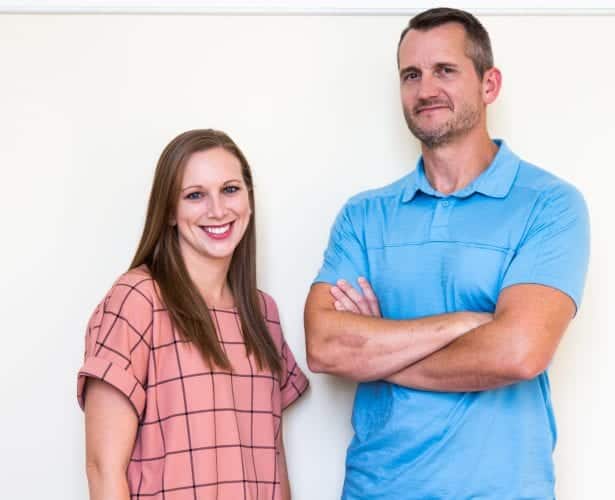Sponsored Content

Everyone experiences some everyday worries and fears, but when those thoughts overtake our minds or lead to a panic attack, it can be a sign of something bigger.
When it comes to treating those more impactful fears and anxieties, psychologists like Bend’s Dr. Jason Richards and Dr. Sara Vice are well equipped. Richards opened Bend Anxiety Clinic in 2017, where he specializes in treating a variety of anxiety issues, using evidence based practices such as cognitive behavioral and exposure therapy to help his clients better understand and face whatever causes them anxiety.
Richards said the anxiety people struggle with is a combination of their natural biological predisposition, their personal reactions to things, the circumstances they grew up around and the environment they live in.
“Some people are predisposed to have a harder time with anxiety but end up doing just fine by being taught to face their fears, and some people become sensitive to anxiety due to overwhelming circumstances, and need both support and the tools necessary to overcome their fear,” Richards said.
This October, the psychologists are hoping to raise awareness for the issues they treat, as part of the International OCD Awareness Week, taking place October 11 to 17. The week’s signature phrase is #FaceYourFear, and the efforts are part of a growing awareness for OCD and other anxiety-related conditions.
Many of the practice’s client anxieties are based around the discomfort generated by fear and the ambiguity and uncertainty inherent in life., Richards’ exposure-based treatment approach involves helping a person to realize that their fears aren’t worth the discomfort they are causing, by facing them. This approach can include Richards coming along with a person to a space or a situation that would normally cause them anxiety. By getting more comfortable with a situation that causes anxiety, a person’s brain is retrained to realize that the situation isn’t a dangerous one, after all. Continuing to avoid anxiety-inducing situations can have a negative impact on a person and causes the fear and anxiety to increase over time, he said.
At the Bend Anxiety Clinic, Richards and Vice treat issues including obsessive compulsive disorder, or OCD, as well as panic disorders, body dysmorphia, post-traumatic stress, hoarding and all other anxiety-related conditions.
Vice specializes in treating conditions in children under 14, including general anxiety, school-related issues, social anxiety, specific phobias or anxiety related to experiencing a traumatic event. Sometimes, this anxiety is first noticed in a school environment, if a student is overly anxious about taking a test or in social situations. “Usually a little anxiety is manageable and goes away, but in some cases the child is worrying more often than not,” Vice said. Another warning sign of anxiety might be a child who often has trouble sleeping.
Between sessions with Vice, a child’s parents or caregivers become a crucial part of the treatment. “I teach the kids a lot during the session, and then I’m wanting them to implement it during the week,” she said. “It’s important for parents to reinforce what is learned.
For anxiety disorders and for OCD specifically, the psychologists said symptoms are often noticed by friends or family members first, so knowing the signs are important. These can include compulsive behaviors, like overly excessive hand washing or participating in a variety of rituals to prevent something like germs or contamination.
If you or someone you know is experiencing symptoms of anxiety, visiting Bend Anxiety Clinic, or calling to have a conversation with a psychologist there is a great first step to improving symptoms, Richards said. He said in most cases, anxiety treatment is covered by insurance, and he said the clinic has a 90 percent success rate with clients.
For more information about Bend Anxiety Clinic, visit bendanxietyclinic.com or call 541-668-6015.



